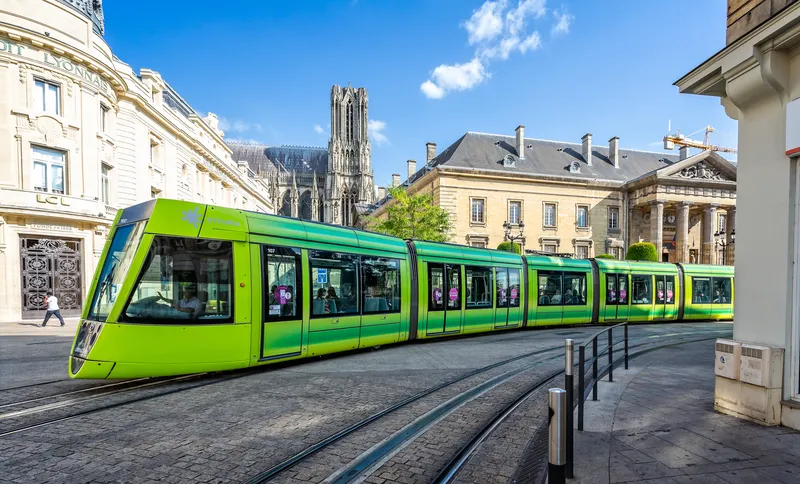As part of a master plan for its highways, Vietnam is pushing ahead with a demonstration project aimed at integrating the country’s electronic toll collection (ETC) systems.
Vietnam is making steady progress in introducing ETC systems into the country's expressway network, but many are calling for the country to integrate its three separate communication modes currently in service – active dedicated short range communications (DSRC), passive DSRC and radio frequency identification (RFID).
The Director
September 14, 2015
Read time: 2 mins
As part of a master plan for its highways, Vietnam is pushing ahead with a demonstration project aimed at integrating the country’s electronic toll collection (ETC) systems.
Vietnam is making steady progress in introducing ETC systems into the country's expressway network, but many are calling for the country to integrate its three separate communication modes currently in service – active dedicated short range communications (DSRC), passive DSRC and radio frequency identification (RFID).
The Directorate for Roads of Vietnam (DRVN) and Vietnamese Ministry of Transport (MOT) have signed a memorandum of agreement with Mitsubishi Heavy Industries (MHI) Sojitz Corporation and the Vietnam Joint Stock Commercial Bank for Industry and Trade (VietinBank).
The focus of the demonstration project will be on developing a new ETC system which integrates the three existing formats. Data from the new system will be collected from the suburbs of Ho Chi Minh City in the country's south. Based on the project, MHI, Sojitz and VietinBank also aim, with support from DRVN/MOT, to create a second project involving an intelligent traffic system (ITS).
Some two million vehicles are currently registered in Vietnam and new registrations are increasing at a rate of 120,000 to 150,000 each year. In December 2008 the Vietnamese government, in anticipation of the country's shift to a motorised society in the future, formulated a master plan for the nation's expressways. The plan covers 22 routes spanning a total distance of 5,873 kilometres (3,649 miles) and its execution requires a total investment of US$48 billion.
Under the plan, ITS technology is to be introduced to the major expressways in order to enhance their safety and driving comfort in the coming era of motorisation. The plan calls for progressive introduction of traffic control, ETC and other sophisticated systems going forward.
Applying the knowhow they will accumulate from the newly agreed demonstration project, MHI, Sojitz and VietinBank look to make important contributions to the development of Vietnam's road transport networks in the years ahead.
Commenting on the project, a spokesman for DVRN said, “In order to meet the highest demand of traffic drivers and toll collection service users, deploying integrated solution for the three existing formats including DSRC active, DSRC passive and RFID plays an important role.”
Vietnam is making steady progress in introducing ETC systems into the country's expressway network, but many are calling for the country to integrate its three separate communication modes currently in service – active dedicated short range communications (DSRC), passive DSRC and radio frequency identification (RFID).
The Directorate for Roads of Vietnam (DRVN) and Vietnamese Ministry of Transport (MOT) have signed a memorandum of agreement with Mitsubishi Heavy Industries (MHI) Sojitz Corporation and the Vietnam Joint Stock Commercial Bank for Industry and Trade (VietinBank).
The focus of the demonstration project will be on developing a new ETC system which integrates the three existing formats. Data from the new system will be collected from the suburbs of Ho Chi Minh City in the country's south. Based on the project, MHI, Sojitz and VietinBank also aim, with support from DRVN/MOT, to create a second project involving an intelligent traffic system (ITS).
Some two million vehicles are currently registered in Vietnam and new registrations are increasing at a rate of 120,000 to 150,000 each year. In December 2008 the Vietnamese government, in anticipation of the country's shift to a motorised society in the future, formulated a master plan for the nation's expressways. The plan covers 22 routes spanning a total distance of 5,873 kilometres (3,649 miles) and its execution requires a total investment of US$48 billion.
Under the plan, ITS technology is to be introduced to the major expressways in order to enhance their safety and driving comfort in the coming era of motorisation. The plan calls for progressive introduction of traffic control, ETC and other sophisticated systems going forward.
Applying the knowhow they will accumulate from the newly agreed demonstration project, MHI, Sojitz and VietinBank look to make important contributions to the development of Vietnam's road transport networks in the years ahead.
Commenting on the project, a spokesman for DVRN said, “In order to meet the highest demand of traffic drivers and toll collection service users, deploying integrated solution for the three existing formats including DSRC active, DSRC passive and RFID plays an important role.”










